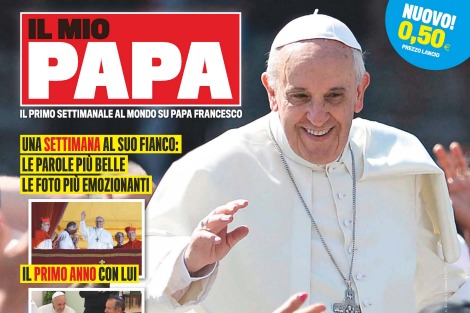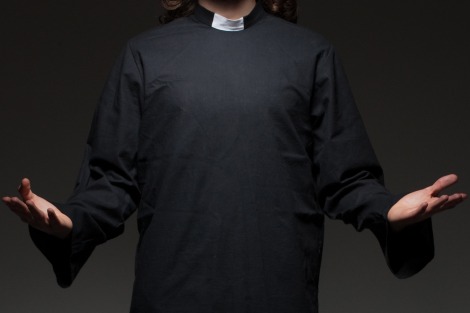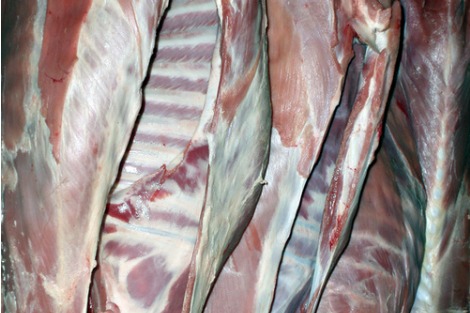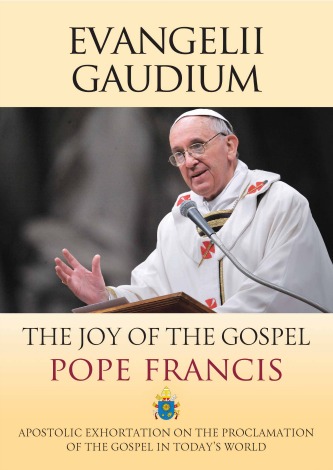Keywords: Ministry
There are more than 200 results, only the first 200 are displayed here.
-

RELIGION
- Andrew Hamilton
- 13 March 2014
5 Comments
The appearance at the end of Francis' first year of Berlusconi's new magazine, Il Mio Papa, is testimony that the Pope is now mythical, a celebrity, and that the myth can be manipulated, marketed and monetised. It is difficult to give an accounting for celebrities, but merely popping their balloon also misses what in them attracts popular attention. So it is with evaluating what is distinctive about Francis and what he has contributed to the Church.
READ MORE 
-

RELIGION
- Pat Power
- 14 February 2014
49 Comments
Most priests believe the Royal Commission was very much needed to face up to a terrible episode in the Church's history. They also believe that sexual abuse took place in an environment of clericalism which was imposed by the highest authority in the Church, and which they felt powerless to confront. 'Father is always right' operated from the Pope down and any questioning of it was seen as disloyal or even heretical.
READ MORE 
-

ARTS AND CULTURE
- Kristin Hannaford
- 11 February 2014
1 Comment
The abattoir to the left funnels steam into the night, a long slow drag exhaled by a thousand beasts, also travelling tonight. Poor cattle, horses, and pigs. Some days, the air is so bloodthick it hinges at the back of the throat, a glottal of rusty muck. Not tonight though. The air is winter clear, glassy.
READ MORE 
-

RELIGION
- Andrew Hamilton
- 06 January 2014
6 Comments
I indulge a passing self-congratulatory thought that the Pope is, like me, a Jesuit, and will understand our Jesuit ways. And that the Church, of course, will benefit immeasurably from his Jesuit training. That is immediately followed by a touch of anxiety: perhaps he will understand our ways all too well.
READ MORE 
-

AUSTRALIA
- John Falzon
- 17 December 2013
13 Comments
Recently Pope Francis blasted the so-called trickle-down economic theories in his apostolic exhortation Evangelii Gaudium. Some will scorn his message as naive at best and dangerous at worst, while others will regard it as an urgent enkindling of hope in the face of degradation and despair. The Christmas story hints that another kind of world is possible.
READ MORE
-

INTERNATIONAL
- Justin Glyn
- 06 December 2013
15 Comments
The recent revelations that ASIO raided the offices of Timor Leste's lawyers and detained its star witness just before its case against Australia highlights, once again, the question of the linkage between national and commercial interests. ASIO's governing statute does not permit it to engage in economic espionage. Unfortunately, the distinction between government and commercial interests is growing increasingly hard to draw.
READ MORE
-

RELIGION
- Andrew Hamilton
- 05 December 2013
24 Comments
To my knowledge this is the first church document that refers to 'sourpusses'. It must be the first lengthy papal document for some time, too, that refers to the Magisterium only twice in passing. Nor does Pope Francis refer explicitly to clerical sexual abuse. Francis is not interested in radical institutional or doctrinal change but wants to help a dysfunctional church work better at compassionately communicating God's love.
READ MORE
-

RELIGION
- Brian Lawrence
- 29 November 2013
12 Comments
In his recent address to the Yarra Institute about Christian social thinking, Fr Frank Brennan expressed the view that 'Christian churches are all but absent from the economic debate other than making the occasional, predictable utterance about ensuring that no one is left worse off as the result of new policy measures'. This seriously understates the public advocacy of the Australian churches and does a disservice to many people and organisations.
READ MORE 
-

ECONOMICS
- Jean-Paul Gagnon
- 18 November 2013
15 Comments
What if citizens were given the chance to fill out a preference form online as part of their own personal, digital tax portal? You could choose to pick 'below the line' and individually choose what your tax money can and can't be spent on. For example you might like to spend on funding public schools, the bullet train, hospital supplies and museums, and not to spend on nuclear power plants, weapons development, or the automotive industry subsidy.
READ MORE 
-

RELIGION
- Andrew Hamilton
- 14 November 2013
14 Comments
In a welcome first step, the Vatican has invited lay Catholics to offer their views on the family. The document that accompanies the survey represents a fairly traditional Catholic theology of the family, setting it within a high theology and expressed in elevated language. This theology has been developed principally by celibate men, no doubt familiar with family life through their childhood and pastoral ministry, but at a distance from it.
READ MORE 
-

RELIGION
- Frank Brennan
- 12 November 2013
5 Comments
'Having thrown off the shackles of compulsion endured by pre-Vatican II Catholics, we relish that we come to the table not because we are forced, not because of social expectations, not because of the mindset of the mob, but because we are graciously called and freely responding.' Frank Brennan's Camino Address, Parish of Our Lady of the Way North Sydney, 12 November 2013
READ MORE
-

RELIGION
- Frank Brennan
- 08 November 2013
1 Comment
'Many Catholics wonder how we can maintain our Christian faith at this time in the wake of the sexual abuse crisis and the many judgmental utterances about sexuality and reproduction. The Church that has spoken longest and loudest about sex in all its modalities seems to be one of the social institutions most needing to get its own house in order.' Frank Brennan's address to the Yarra Institute for Religion and Social Policy, 8 November 2013.
READ MORE